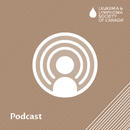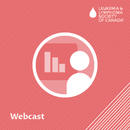Resource Library
Showing 91 to 100 of 333 results
David Johnson, of BC, first diagnosed with the disease in 2012 in his early 50s, has experienced 2 relapses, 2 stem cell transplants, and participated in a clinical trial for CAR T-cell therapy. Dr. Anthony Reiman, medical oncologist in NB, talks about advances in MM treatment.
Dr. Rena Buckstein from Odette Cancer Centre in Toronto shares the basics of myelodysplastic syndromes (MDS) diagnosis, treatment, and side effects.
“The majority of people with DLBCL will be cured with their first treatment – so that's a success story,” says Dr. John Kuruvilla, working as a hematologist-oncologist for 20 years including as a researcher in DLBCL, which is the largest form of non-Hodgkin lymphoma.
“Researchers are now focused on maintaining an excellent cure rate and…
“Researchers are now focused on maintaining an excellent cure rate and…
“We’re hoping that when individuals living with illness, and their families, hear the term “palliative’ they shift their perspective from being afraid they’re coming to the end of life, and start to feel that palliative care is going to support their well-being and quality of life,” says Valerie Fiset, director of the Champlain Hospice Palliative Care…
The emotional cost of caregiving when a loved one has a blood cancer is no small matter – as Saskatchewan’s Lori Galbraith can attest. The mother of four was the caregiver of her husband Jim, who was diagnosed with acute myeloid leukemia (AML) and underwent a stem cell transplant.
“The hardest part was providing positive emotional support [to…
“The hardest part was providing positive emotional support [to…
Maura C. had recently returned to work after maternity leave when her daughter, then 15 months old, was diagnosed with acute myeloid leukemia (AML) and immediately admitted to the oncology ward. “This is a nightmare I’m not waking up from,” Maura thought over the 5 months her toddler was in the hospital. She says she and her husband moved from their initial…
Tziona Lugasi, clinical psychologist in the hemato-oncology department at CHU Sainte-Justine, talks about the impact of cancer on children, teens and their parents, and the transition from pediatric care to adult health care.
It may be the first time you've talked about your blood cancer, since your diagnosis, with anyone outside immediate family, or it may be after years of living with cancer... Either way, the LLSC community services lead in your region is ready to listen and support you in any way you need. Geoffrey Molle, one of those leads, talks about the confidential…
Graft vs Host Disease, known as GvHD, is a side effect of a life saving procedure. People who undergo an allogeneic stem cell transplant - when a donor's stem cells are transplanted into the recipient - can experience either acute or chronic GvHD. In this podcast, listen to blood cancer survivor Libby Goszer, who describes her experience living with…
Scientists continue to gain a deeper understanding of the genetic changes that lead to the development of cancers. This knowledge is being used to develop more precise treatments for blood cancers, especially in Acute Myeloid Leukemia (AML).
In this webcast, Dr. Aly Karsan talked about the latest research developments in precision medicine…
In this webcast, Dr. Aly Karsan talked about the latest research developments in precision medicine…

